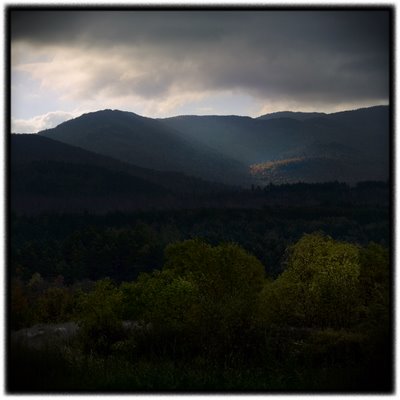ku # 403 and a commentary for your consideration

Some guy, John C Dvorak to be exact, has published
Well, scratch my back with a hacksaw. What the hell was I thinking?
While these notions certainly have been fashionable in photo-academia for some time, it's somewhat distressing to find a media pundit - with no apparent connection to photography (other than as grist for a column on technology) or photo-academia - speaking
Simply stated, Photography, by the nature of its mechanistic method of recording of what lies within the field of view of a camera (lens attached), is capable of precisely describing (with great clarity) the object of its attention - what some label as the referent or the denoted. It can, and often does present, a denoted visual truth. The fact that the photographer (in some instances, an artist) has isolated the referent from its total environment and further still isolated it as a disconnected segment from the stream of time certainly posits the photograph as a fraction of a truth, but a truth nonetheless.
Additionally, and in no small measure, photography is also fully capable of capturing/expressing a connoted truth. In the famous photograph of the running young Vietnamese napalm-wounded girl (the denoted "truth"), there are many possible connoted "truths" - war sucks, napalm hurts, the plight of innocent victims of war (collateral damage) is unconscionable, etc.
IMO, the problem with the notion of photographic truth is not whether it "exists" but, rather, why so many photographers use this defining visual characteristic of the medium to create untruths.



4 Comments:
I think because the camera (+lens) and photographer can capture a piece of time (or their piece of truth, if you will), it can also be an "untruth", because it is always being cut from the flow and context of the fullness of the present moment and filtered through the thoughts and perceptions of the photographer, thereby becoming what may be to some, an "untruth." We all do it when we take a photo. We only click that shutter when some moment in time - light falling on some scene/objects - catches our eyes/minds, instantly triggering something within us and we make that photograph. That captures that slice of that present moment for us, that may render something of some kind of truth to us, but may not represent any kind of truth to someone else. A photo has a strong impact and can lead others in any kind of direction you choose, if you choose to make a photo with a particular slice of time out of the bigger context it may inhabit. Not every photographer makes a concious decision when he or she clicks the shutter, but some do and they may have an agenda and want to lead others with their photos and their photos may have even more of an "untruth" to them, as they are conciously taken out of context with intent. This I think is harmful to photography in a way than the unconcious simple act of taking a photo because something pleases one. I think in the long run, it turns people away from photography in general, because people begin to see the "untruth" in it and see the agendas and ego driven story behind it. It loses impact as an art form, in my opinion. I hope this hasn't been a confusing ramble!
Michelle,
This is just absolutely enlightening. Very well written.
As for the image, I like the way the first or last light is streaming over the peaks. It gives hope and a chance to explore and learn during a new day if it is first light. If it is last light, invokes an end to a productive day.
I think its about ambiguity - a trait of photography that seems to make many people uncomfortable but which I think is an important part of its expressive depth.
Photographers have always had many tools to obscure the referent (to use Mark's term) - tight crops, selective blurring, etc. The digital domain gives them more tools. Some people seem to get very upset if they feel the depiction of the referent is not sufficiently faithful or literal - more so when this is achieved by digital means.
And the possible connotations that can be derived from a photograph are inherently ambiguous.
As such, I'm leery about using the term 'truth' in the context of photographs - since this always seems to imply a single, unambiguous interpretation is possible - or even desirable.
In fact, I rather revel in the fact that a photograph can at once be completely literal (as in some sense it must be) and yet entirely ambiguous.
I have often seen photography has having an irreconcilable existance in many ways. The expressive intent of an artist vs. the interpretive absorption by a viewer can be a great divide.
Post a Comment
<< Home